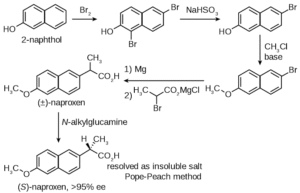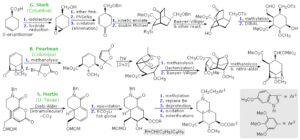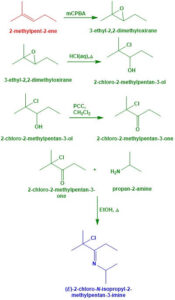Back to: Organic Chemistry 400 Level
Welcome to class!
Hello brilliant learner, I’m really happy to work with you again today. I hope you’re feeling enthusiastic because today’s topic — Synthetic Strategies & Multi-Step Synthesis — is a key component of advanced organic chemistry and a major bridge between theory and real-life laboratory practice. This lesson will help you understand how chemists plan, design and carry out complex syntheses in a logical and efficient way, especially when building large molecules such as drugs and natural products.
Synthetic Strategies & Multi-Step Synthesis
Imagine trying to renovate a house. You don’t just start randomly; you first make a detailed plan, decide on the steps in the right order, identify what materials will be needed and then carry out the renovation step-by-step. In the same way, multi-step synthesis requires careful planning and clear strategy.

Meaning of Synthetic Strategy
A synthetic strategy is a detailed plan that outlines how to transform simple starting materials into a complex target molecule using a series of chemical reactions. The goal is to choose the best route that gives high yield, good selectivity and is practical in the laboratory.
Chemists often begin with a target molecule and work backward to identify the most suitable starting materials. This method is known as retrosynthetic analysis.
Retrosynthetic Analysis
Retrosynthetic analysis is a problem-solving technique where the target molecule is broken down into simpler units called synthetic precursors. Each disconnection reveals a simpler starting material that can be obtained or easily prepared.
For example:
Target Molecule → Disconnect key bond → Simpler fragment → Repeat until basic commercial chemicals are reached
This is just like dismantling a complex Lego structure into smaller pieces so you can see how to rebuild it step-by-step.
Reagents and Functional Group Interconversions
A successful synthesis often depends on knowing which reagents can convert one functional group to another. These transformations are called functional group interconversions (FGIs).
Examples:
Alcohol → Aldehyde (using PCC)
Alkene → Epoxide (using mCPBA)
Alkyl halide → Grignard reagent (using Mg in dry ether)
Planning these changes carefully is essential in multi-step synthesis because the order of reactions affects the final result.
Protecting Groups
During synthesis, some functional groups may need to be “protected” while other parts of the molecule are modified. A protecting group temporarily blocks a reactive site to prevent unwanted reactions.

For example:
Protecting an alcohol as a silyl ether so that another part of the molecule can undergo a different reaction safely.
This is similar to covering part of a wall with masking tape while painting, so the paint doesn’t get on the wrong section.
Linear vs Convergent Synthesis
Linear synthesis – reactions are carried out one after another from the beginning to the end.
Convergent synthesis – two or more complex fragments are prepared separately and then joined together in the final step.

Convergent synthesis often saves time and improves overall yield, especially for large molecules.
Summary
- Synthetic strategy is the planning process used to transform simple starting materials into a target molecule.
- Retrosynthetic analysis involves working backward from the target molecule to simpler precursors.
- Functional group interconversions and the correct choice of reagents are key elements of multi-step synthesis.
- Protecting groups are used to block sensitive functional groups temporarily during synthesis.
- Linear synthesis progresses step-by-step from beginning to end, while convergent synthesis builds large fragments separately before combining them.
Evaluation
- What is retrosynthetic analysis and why is it important in organic synthesis?
- Differentiate between linear and convergent synthesis.
- What is a protecting group and why is it used in multi-step synthesis?
- Give one example of a functional group interconversion and state the reagent used.
Excellent work today! You’re developing the mindset of a synthetic chemist, and Afrilearn is proud to support you as you continue mastering these advanced topics. Keep going — your next lesson will sharpen your skills even further!
